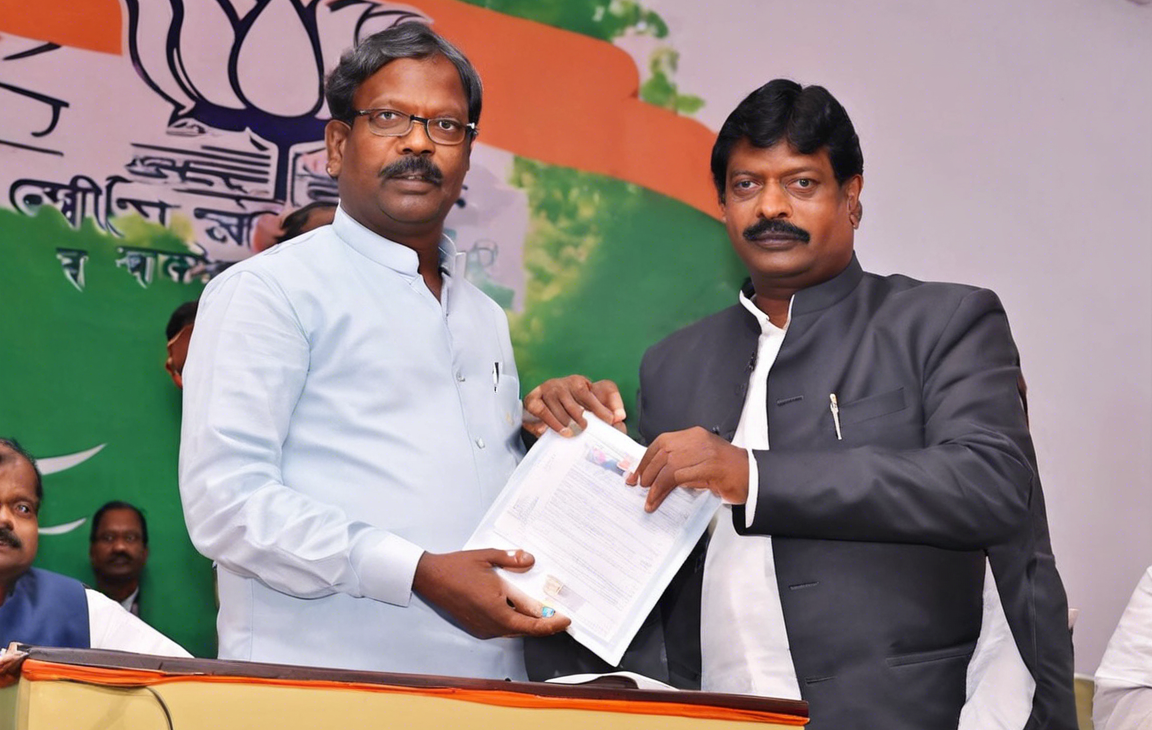Introduction
In the vibrant and diverse landscape of Indian states, Jharkhand shines as a promising region with aspirations for growth and development, particularly in the realm of education. Central to the progress of any state is its education system, and at the helm of this transformative journey in Jharkhand is the Education Minister, who plays a pivotal role in shaping the future of the state’s education sector.
Role of the Education Minister
The Education Minister of Jharkhand holds a multifaceted role that encompasses policy-making, resource allocation, infrastructure development, curriculum design, teacher training, and overall improvement of the quality of education in the state. This position requires a visionary leader who can navigate the complex challenges in the education sector and steer it towards excellence and inclusivity.
Vision for Education in Jharkhand
Under the leadership of the Education Minister, Jharkhand envisions a holistic education system that caters to the diverse needs of its students, fosters creativity and innovation, promotes critical thinking and problem-solving skills, and prepares the youth for the challenges of the 21st century. The Minister’s vision is anchored in principles of equity, access, quality, and relevance, ensuring that every child in Jharkhand has the opportunity to receive a well-rounded education.
Key Initiatives and Reforms
In line with this vision, the Education Minister of Jharkhand has spearheaded several initiatives and reforms to revitalize the education sector. These include:
1. Infrastructure Development: Investing in the creation and upgradation of school infrastructure to provide a conducive learning environment for students.
2. Teacher Training Programs: Implementing comprehensive teacher training programs to enhance teaching methodologies, pedagogical skills, and classroom management techniques.
3. Curriculum Reforms: Introducing innovative curriculum reforms that promote experiential learning, skill development, and interdisciplinary studies.
4. Digital Learning: Embracing technology in education by integrating digital tools and resources in teaching-learning practices.
5. Inclusive Education: Ensuring inclusive education for children from marginalized communities, including differently-abled students, girls, and those from socio-economically disadvantaged backgrounds.
Challenges and Roadblocks
Despite the concerted efforts of the Education Minister and the government, the education sector in Jharkhand faces several challenges and roadblocks. These include issues such as:
1. Low Enrollment and High Dropout Rates: Addressing the issues of low enrollment in schools, particularly in remote and tribal areas, and combating high dropout rates.
2. Quality Disparities: Bridging the quality disparities between urban and rural schools, as well as government and private institutions.
3. Teacher Shortage: Tackling the shortage of trained teachers, especially in subjects like science, mathematics, and English.
4. Lack of Vocational Training: Enhancing vocational training opportunities to equip students with employable skills.
5. Language Barriers: Overcoming language barriers for tribal and indigenous communities by promoting multilingual education.
Frequently Asked Questions (FAQs)
1. What are the qualifications required to become an Education Minister in Jharkhand?
To become an Education Minister in Jharkhand, one typically needs a strong educational background, leadership skills, political experience, and a deep understanding of the education sector’s challenges and opportunities.
2. How can parents contribute to improving the quality of education in Jharkhand?
Parents can contribute to improving education in Jharkhand by actively participating in their child’s education, supporting teachers and school management, advocating for policy reforms, and creating a conducive learning environment at home.
3. What role do NGOs and civil society organizations play in the education sector in Jharkhand?
NGOs and civil society organizations play a crucial role in complementing government efforts in the education sector by providing support services, advocating for inclusive policies, implementing innovative programs, and mobilizing resources for underserved communities.
4. How does the Education Minister ensure transparency and accountability in the education system?
The Education Minister ensures transparency and accountability in the education system by implementing robust monitoring mechanisms, conducting regular audits, engaging stakeholders in decision-making processes, and fostering a culture of openness and integrity.
5. What are the future goals and priorities of the Education Minister for the education sector in Jharkhand?
The future goals and priorities of the Education Minister for the education sector in Jharkhand may include enhancing student outcomes, improving infrastructure, promoting digital literacy, strengthening teacher capacity, fostering research and innovation, and promoting inclusivity and equity in education.
In conclusion, the Education Minister of Jharkhand plays a pivotal role in shaping the present and future of education in the state. Through visionary leadership, strategic initiatives, and collaborative efforts, the Minister endeavors to create a thriving education ecosystem that empowers every child to reach their full potential and contribute meaningfully to society.







